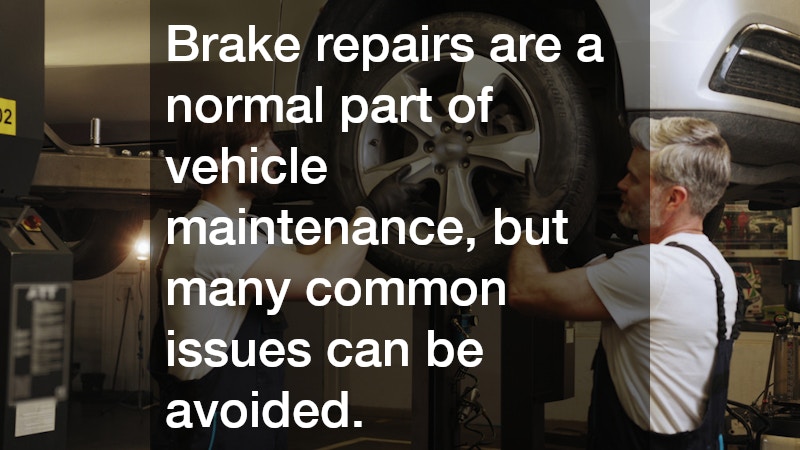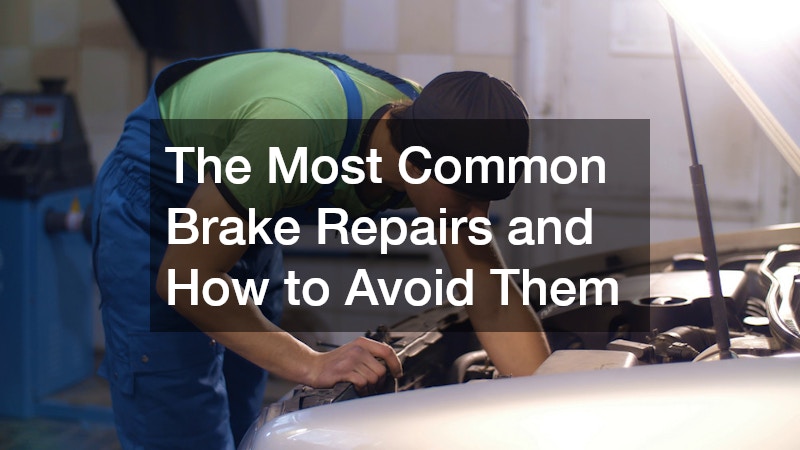Brake repairs are one of the most common services performed on vehicles across Australia. Your car’s braking system plays a crucial role in keeping you safe on the road, which is why staying on top of maintenance and recognising warning signs early is essential.
While some repairs are inevitable due to wear and tear, many can be avoided with regular care and smart driving habits. Knowing what to look out for and how to prevent problems can help you save money and avoid sudden breakdowns.
Worn Brake Pads
The most frequent brake repairs involve replacing worn-out brake pads. These pads create the friction needed to stop your car, but over time, they naturally wear down. Driving with worn pads not only reduces stopping power but can also damage the rotors, leading to more expensive repairs.
Most vehicles will give off warning signs, such as squealing noises or a grinding sound, when the pads are too thin. Some models also have dashboard indicators that alert you when it’s time for a replacement.
To avoid this issue, have your brake pads inspected regularly, especially if you do a lot of city driving or carry heavy loads. Replacing them on time is far cheaper than repairing damaged rotors.
Warped Rotors
Rotors are the metal discs your brake pads clamp down on to stop the vehicle. If they become warped or uneven, you may notice vibrations or pulsating when braking, especially at higher speeds. This often results from overheating due to aggressive braking or infrequent pad changes.
Driving with warped rotors can lead to longer stopping distances and an uncomfortable ride. In severe cases, they can compromise safety and result in complete brake failure.
The best way to avoid this is to adopt smooth braking habits. Try not to brake harshly unless necessary. Also, ensure your brake pads are replaced before they wear down too much, as worn pads increase rotor stress.
Leaking Brake Fluid
Brake fluid is essential for transferring force from your foot to the braking system. If there’s a leak, the system can lose pressure and fail to operate correctly. Signs of a fluid leak include a soft brake pedal, a warning light on the dashboard or visible fluid under the car.
Brake fluid leaks can happen due to damaged hoses, faulty seals or corrosion. Because this problem can significantly affect braking performance, it should be addressed immediately.
To prevent fluid issues, check your brake fluid levels during regular vehicle servicing. If your fluid looks dirty or low, have it flushed and replaced according to the manufacturer’s schedule.
Seized Callipers
Calipers house the brake pads and press them against the rotors when you brake. If a calliper becomes stuck or seizes, it can cause the vehicle to pull to one side, increase wear on one wheel or reduce braking efficiency.
This problem is more common in older vehicles or those exposed to harsh conditions. Moisture, road salt and lack of maintenance can all contribute to calliper issues.
Having your brakes inspected regularly by a qualified technician can help catch early signs of calliper wear or corrosion. Keeping your vehicle clean, especially during winter or after off-road driving, can also extend calliper life.
Noisy Brakes
Unusual noises while braking, such as squeaking, squealing or grinding, are often a warning that something’s wrong. These sounds might result from worn pads, debris between the pad and rotor or low-quality brake components.
Ignoring these sounds can lead to more serious brake repairs down the track. Grinding, for example, usually means the pads are completely worn and the metal backing is scraping the rotor.
Always investigate brake noise early. A quick check-up can prevent further damage and give you peace of mind.
How to Prevent Common Brake Issues
Most brake problems develop over time and can be prevented with routine maintenance. Regular inspections, fluid checks and timely pad replacements go a long way toward avoiding costly repairs.
You should also adjust your driving style. Avoid riding the brakes or stopping abruptly unless necessary. Giving yourself space to slow down gradually not only keeps you safe but also reduces stress on your braking system.
If you notice any changes in how your car brakes – whether it’s a strange sound, a soft pedal or reduced responsiveness – have it looked at promptly. Addressing small issues early can save you from more expensive repairs later.
Brake repairs are a normal part of vehicle maintenance, but many common issues can be avoided with proactive care. Understanding how your braking system works and recognising early warning signs will help you stay ahead of problems.
Whether it’s replacing worn pads, addressing fluid leaks or preventing rotor damage, small steps make a big difference. Regular check-ups and smart driving habits will not only keep your brakes in top condition but also ensure your safety on the road.
Taking care of your braking system is one of the most important things you can do as a car owner. Don’t wait for something to go wrong – stay alert, get regular inspections and trust professionals when repairs are needed.

